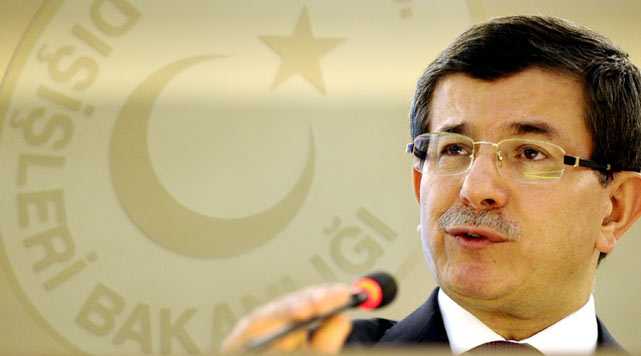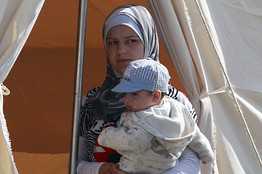By Elizabeth Chuck Reporter
What’s stranger than a man posing as a Syrian lesbian blogger? Two men posing as lesbian bloggers and being unmasked when the “Syrian” staged his/her own abduction.
The emergence of a second male imposter posing as a lesbian is the latest twist in the strange case of the “Gay Girl In Damascus,” a supposed Syrian lesbian blogger named Amina Arraf, who was the subject of headlines around the world last week after she was believed to have been abducted by two masked men.
Readers may have assumed the story had run out of gas over the weekend, when Arraf was revealed to be a 40-year-old Georgia man, Tom MacMaster, who said he had assumed the lesbian persona in order to call attention to the political situation in Syria.
But that was before the Washington Post revealed late Monday that “Paula Brooks,” the editor of the lesbian news site LezGetReal.com, where Arraf began posting, was in fact Bill Graber, a 58-year-old retired U.S. Air Force pilot.
The unmasking of the two men began when Arraf was reported missing last week. Word spread quickly via Twitter and other social media that the articulate woman who bravely detailed accounts of life in Damascus had disappeared — and soon, so did suspicions.
In an effort to track down Arraf, reporters and online sleuths tracked her digital footprints, and came across a lesbian news site called LezGetReal.com, where she had posted comments.
“We are very worried about her,” the editor of LezGetReal.com, who identified herself as Paula Brooks, emailed msnbc.com on June 7, when contacted to request permission to use photos of Arraf. “PLEASE get as much attention out as you can.”
That attention arrived, more than Graber ever wanted.
“I was telling other people’s stories, people who didn’t want to tell them with their own names, so Paula told them,” Graber told msnbc.com in a phone interview on Tuesday. “I wasn’t being evil; I wasn’t being crazy.”
While MacMaster apologized for the international firestorm his Syrian blogger hoax had set off, Graber expressed less remorse — except to his wife, Paula. Paula Graber found out about her husband’s online persona at the same time the rest of the world did.
“My wife is a busy lady. She knows that I do something on the computer, but she respects my privacy,” he said. Now that she knows, she “is really, really, really annoyed that I used her name. She said, ‘Couldn’t you have used another one?’ I probably should have done that.”
-
Only on msnbc.com
-
AFP – Getty Images
Phony lesbian blogger ‘Gay Girl’ wasn’t alone
-
But the Paula Brooks lesbian persona was necessary, Graber argued.
He said he started using the character of Paula Brooks six years ago, describing her as a gay surfer mom who lived in The Outer Banks, N.C., an area Graber loves and hoped to promote as a vacation destination. Paula blogged about surf conditions and her dog. Graber created it as a “harmless little game,” but soon discovered the blog was gaining popularity.
“I had a lot of readers who didn’t know that Paula wasn’t real,” he said. “… She was a hiding place for me.”
More recently, Graber, who lives in Ohio, said he decided to provide an online space for gay and lesbian activists after seeing first-hand how gay couples in domestic partnerships are treated.
“I had a very good lesbian couple that were my friends,” he said. “They had a relationship that was to kill for. I watched one of them die, and I watched the hell that they went through that I wouldn’t have had to go through” as a straight, married man.
So in 2008, Graber said, he created LezGetReal.com. Surfer Mom Paula became lesbian editor-in-chief Paula.
“That character had to be credible,” Graber said. “I’m an impressive guy, but the gay community is going to tell me to get screwed” if he had blogged as a straight man.
Enter ‘A Gay Girl in Damascus’
In February, Amina Arraf began commenting on LezGetReal. Her writing was superb, Graber said, but he was immediately suspicious. He emailed her — as Paula — seeking verification of her identity and asking why, among other red flags, her website’s IP address was in Scotland, not Syria.
“She said that’s the way you to do it in Syria. You had to use a proxy to get out,” he said. “So I never looked into it again.”
Meanwhile, to beef up his own fake character’s authenticity, Graber had created a Facebook profile for Paula Brooks. He used a photo of his sister when she was 20 for the profile picture.
As Arraf, Tom MacMaster looked Paula Brooks up on Facebook.
“He was a player,” Graber said. “He tried to flirt.”
The two exchanged messages for months, but Graber said he kept it strictly business. Whenever Arraf became flirtatious, he said, he claimed Paula had a girlfriend and was not interested in anything beyond the reporting from Syria.
Visit msnbc.com for breaking news, world news, and news about the economy









